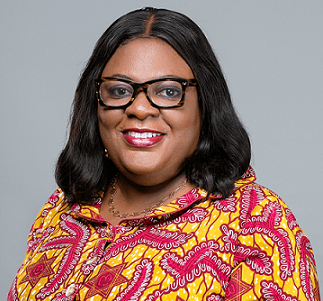In a resounding call for unity and economic progress, Eva Esselba Mends – Chief Director at the Ministry of Finance – issued a fervent plea for urgent and deliberate pursuit of economic integration within the West African region.
As West Africa grapples with economic challenges, political instability and an increasing young population, the pursuit of a single currency and enhanced cooperation remains imperative to unlocking benefits that could transform the lives of the region’s people.
“We must urgently and deliberately pursue the economic integration of our sub-region and rake in the extensive benefits for our peoples,” declared Ms. Mends.
Her words at the 53rd Technical Committee of Member States of the West African Monetary Zone (WAMZ) meeting set the tone for a crucial gathering that aimed to address challenges facing the West African region.
Ms. Mends emphasised the connection between economic instability and political unrest, highlighting ongoing conflict in the Sahel region and its repercussions. “Even as we think of ways to change this narrative, we face increasing political instability and insecurity. A new wave of military interventions have coincided with the ongoing conflict in the Sahel region, where violence has displaced more than 2.5 million people. This is compounding a vicious cycle with severe consequences for economic stability,” she warned.
The meeting provided a timely platform for deliberating on common interests, particularly the dream of implementing a single currency across West Africa. Ms. Mends stressed the zonal platform’s importance for success of the ECOWAS-wide project, emphasising its role in policy harmonisation, economic integration and institutional development.
According to World Bank data, the West Africa region witnessed a compound annual GDP growth rate of 4 percent between 1990 and 2021 – though per-capita growth remained modest at 1.3 percent due to rapid population growth. Foreign direct investment has been limited, except for the investment in iron ore between 2009 and 2014; and regional trade performance has remained stagnant.
The region’s youthful population, currently numbering approximately 430 million and growing at 2.5 percent per year, underscores the urgency of achieving economic integration to avoid a cycle of insecurity, joblessness and stalled human development.
On the domestic front, Ghana’s economic growth has remained positive despite the impact of multiple crises. Government’s commitment to restoring macroeconomic stability through the Post-COVID Programme of Economic Growth (PC-PEG) has yielded positive results, with key indicators showing improvement. Despite record-level inflation, Ghana remains optimistic about the near-term outlook, with measures in place to bring inflation under control.
Dr. Alhassan Iddrisu, the incoming chairman of the 53rd meeting of the Technical Committee of Member States of the West African Monetary Zone, echoed the call for economic and monetary integration in his acceptance speech. He highlighted the long-standing vision of rolling out a single currency across the region as a top priority.
“With respect to the status of macroeconomic convergence as of end-December 2022, no member state of the WAMZ satisfied all four primary criteria. Guinea and Liberia attained three of the four primary convergence criteria each. The Gambia and Nigeria met two each, and Sierra Leone satisfied one criterion while Ghana missed all,” noted Dr. Iddrisu.
The gathering of regional leaders and experts at the 53rd meeting of the Technical Committee of Member States of the West African Monetary Zone underscored the critical need for concerted efforts toward economic integration.










